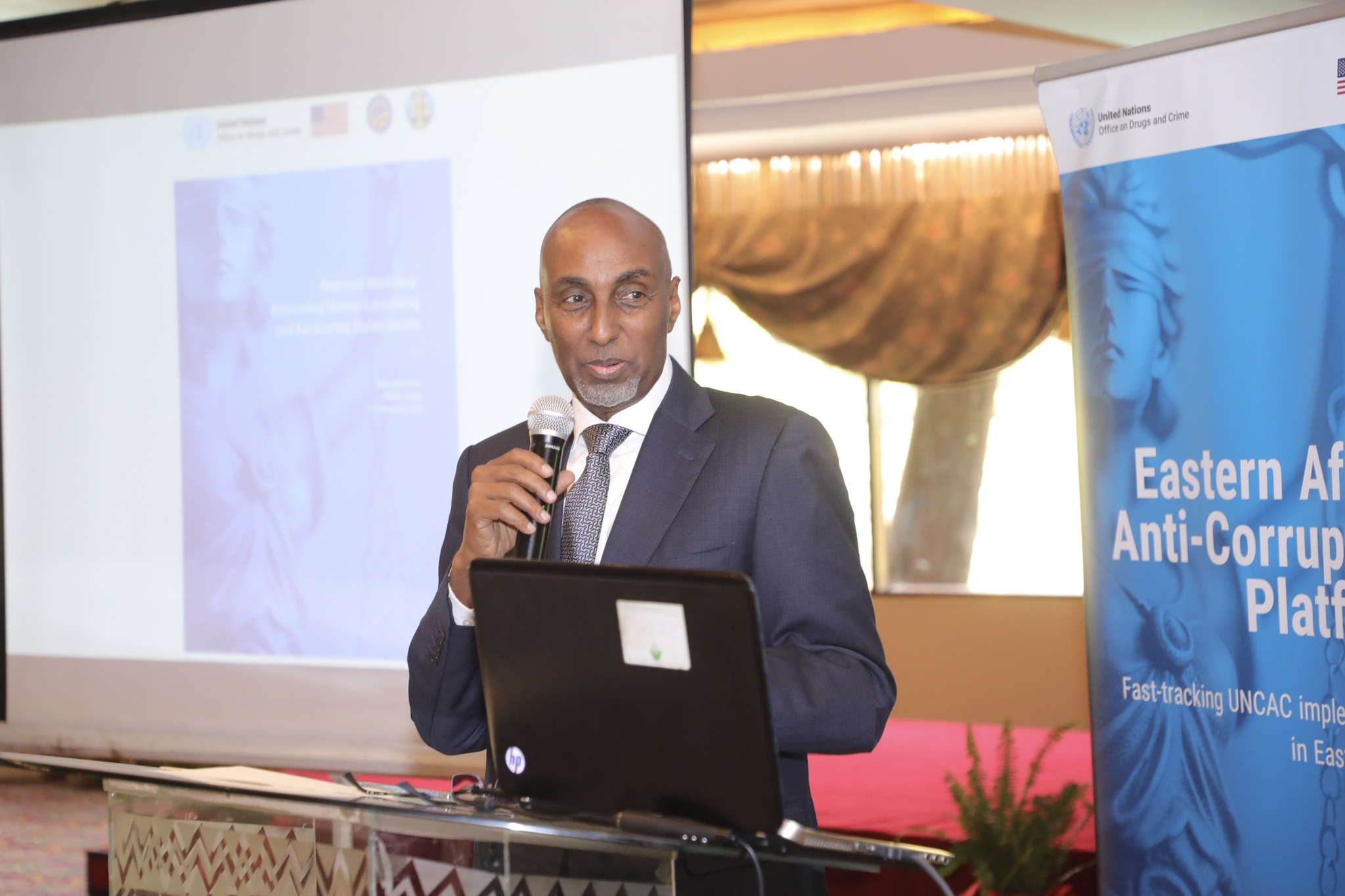

The Ethics and Anti-Corruption
Commission (EACC) has uncovered deep-rooted governance gaps and corruption
vulnerabilities within the National Police Service (NPS), urging urgent reforms
to strengthen accountability and restore public trust in law enforcement.
Presenting the Report of the
Examination into the Systems, Policies, Procedures and Practices of Work at the
NPS at the National Police Leadership Academy in Ngong, the
commission warned that unchecked weaknesses could continue to fuel bribery,
abuse of office and inefficiency within the country’s largest security agency.
“Failure to follow laid down
procedures and reliance on manual systems have made the recruitment process
vulnerable to manipulation,” the report states.
It recommends full automation of the
process and uniform application of selection criteria across all centres.
The examination, conducted between February
and June 2025, was supported by the United Nations Office on Drugs and
Crime (UNODC) under the Programme for Legal Empowerment and Aid Delivery
in Kenya, Phase II (PLEAD II), funded by the European Union (EU).
The EACC report paints a mixed
picture, acknowledging progress in some areas while exposing serious lapses in
governance, recruitment, human resource management and operational procedures.
Among the most glaring findings are irregular
police transfers and deployments, manipulated recruitment processes
and systemic extortion within traffic units and police stations.
The Commission said the gaps expose
the Service to abuse of authority and corruption.
It cited instances where police
officers were transferred without the approval of the National Police
Service Commission (NPSC), or deployed as punishment for declining sexual
advances from superiors.
In others, “price tags” were
reportedly attached to desirable stations and positions, particularly
within traffic departments.
Recruitment of police constables was
also flagged for bribery, political interference and discriminatory
advertisements, while some candidates were eliminated arbitrarily.
The Commission also highlighted staffing
shortages in key oversight and support units.
For example, the Internal Affairs
Unit, mandated to handle complaints against police officers, had only 74
staff against an approved 1,168, severely hampering its effectiveness.
The Traffic Police Unit, long
associated with bribery, was cited for “systematic extortion” of public service
vehicle operators through daily and route-level collections, often
institutionalised as unofficial fees.
At the station level, EACC found
evidence of “protection fees” collected from business operators, inconsistent
bail management practices, and poor detention conditions.
The poor detention conditions
included overcrowding, poor sanitation and lack of separate holding areas for
women and juveniles.
The report also exposed corruption
in uniform and fleet management, noting that some officers had to bribe
quartermasters to receive standard uniforms, while others purchased them from
vendors and even other disciplined services.
In the investigations and
forensic units, the report cites inadequate decentralisation, delays
in operationalising the national forensic laboratory and unsecured exhibit
storage, all of which undermine the integrity of investigations.
EACC Chairperson David Oginde
said the report is not meant to shame the Service but to help it “build
resilience against corruption before it occurs.”
“The report highlights both progress
and persistent challenges,” he said.
“Weak internal controls, gaps in
human resource management, and corruption in critical functions such as traffic
enforcement and procurement must be addressed collectively to restore public
confidence.”
Oginde called for the immediate operationalisation
of corruption prevention committees across all police formations, appointment
of Integrity Assurance Officers and implementation of a comprehensive
anti-corruption framework.
He urged the Inspector-General Douglas
Kanja to develop an Implementation Matrix within 30 days to guide
action and allow the Commission to monitor progress.
“Let this report not gather dust on
shelves,” he said. “Let it mark a renewed commitment by leadership, officers,
and citizens to rebuild this vital institution.”
The report revealed that the restructuring
of the Kenya Police Service and Administration Police Service remains
incomplete, with less than 10 percent of integrated officers having received
the required induction training.
The EACC also flagged delays in
disciplinary processes, non-standardised promotions, and unfair
allowance structures, urging the NPS to establish a comprehensive staff
establishment and adopt a merit-based promotion framework.
It further found inadequate
facilities and outdated curricula in police training colleges, recommending
that the Service establish the long-delayed Service Examination Board,
update curricula and improve infrastructure.
The examination exposed weak
financial controls, including failure to allocate Authority to Incur
Expenditure (AIE) to all police formations and delays in fund disbursement.
The Commission also noted non-compliance
in procurement, including lack of user department involvement, absence of
conflict-of-interest registers and irregular classified procurements using
unregistered suppliers.
EACC recommended that all
procurement committees maintain conflict-of-interest registers and
involve user departments in developing specifications and evaluating tenders.
The report also acknowledged
progress made by the police, including financial autonomy, which has
enhanced the Service’s independence in budgeting, and partnerships with
civil society and the media.
Oginde praised the National
Police Leadership Academy as a “visible investment in professionalism” and
lauded the Inspector-General for championing a vision of police stations as
“centres of excellence in service delivery.”
EACC CEO Abdi Mohamud said
the systems examination was not a fault-finding mission but a preventive
exercise to strengthen integrity systems.
“It was not about blame but about
building systems that are resilient to corruption vulnerabilities,” he said.
“When we look deeply at how and why
we work, we prevent fragmentation and build institutions strong enough to
withstand shocks.”
The Commission committed to support the NPS in implementing the report’s recommendations and monitoring progress in line with the national anti-corruption agenda.


















